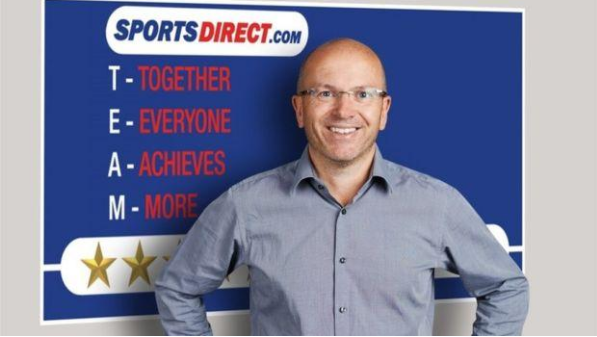To kick off a monthly column around reputational mishaps and blunders, Jennifer Janson, author of The Reputation Playbook and managing director of Six Degrees, will assess how a company recently in the news has handled a crisis, and provide top tips for small businesses to avoid making the same mistakes.
In the first of the series, Janson looks at Sports Direct. It has been a tough year for the high street retailer with an exposé by the BBC focusing on the working conditions at its Shirebrook factory and a number of its corporate governance practices. Its head, Mike Ashley, has had to deal with the brunt of the media attention, coming under fire for zero-hour contracts and outdated working practices. He was even pulled up on it in front of MPs back in June this year where he reluctantly admitted to paying his warehouse staff below the national minimum wage. All contributed to a lack of trust in the company and endless negative headlines in the press.
Jen, what is your view on how the company has handled this crisis?
In short? Not very well. CEO, Mike Ashley, did his best to appear apologetic and humble when he addressed UK parliament, but this was followed by a litany of excuses about how the company got to the stage it did, in terms of contravening employment laws. Security bottlenecks, growing too fast, managers not making him personally aware of issues…all seem a little thin to me. I think the public expects more professionalism from a major brand like Sports Direct.
In my experience, there is rarely smoke without fire. The allegations made against Sports Direct sound like they are directly related to an all-pervading company culture that was geared entirely towards growth and profitability. In itself, a culture geared towards growth can be a very positive thing, but only if it is coupled with an environment where employees are empowered, and are not operating in an environment of fear. Many of the most successful companies are those where the ultimate guiding principle is to ‘do the right thing’ even when, very occasionally, that means not making as much money as they might be able to.
Mr Ashley himself has agreed that he is a ‘PR disaster’, as he continues to make blunders that only serve to reinforce the notion that his focus is simply on getting rich. Appearing at press events with wads of large pound notes in his pocket and defending his commute to work by helicopter – when working conditions for employees are being ompare to a ‘Victorian Workhouse’ – are never going to go down well with the general public.
What would your advice be if you were brought in to help clean up its reputation?
I would suggest the company takes full responsibility and issues a public apology. But most importantly, I’d recommend that it makes significant changes to the way the business is run; meaningful ones, not just done for PR purposes. A company that behaves well wins the favour and loyalty not only of its employees, but also of its customers. Being a better business can mean you also become a bigger business.
I would suggest they welcome an independent investigation, in order to highlight the areas that need rectifying, in order to rebuild lost trust and provide true transparency.
And finally, I’d also recommend the company looks at every part of its business to see if it is operating in line with the company’s core values.
What can everyone else learn from this mismanagement?
If you’ve made a mistake, own up to it. And do not start a fight with the media as it only fans the flames of a digital wildfire!
Take the time to actually think about the reputation you want. What do you want to be known for? What actions are you and your employees doing everyday to contribute to that reputation? If you sell a product, does everything about that product contribute to your reputation? It’s always a worthwhile exercise to get back to basics. Look at your values and your purpose as a business.
Identify risk. Once you start to take a look at what you want to be known for, and whether or not every aspect of your business is contributing to that, you are bound to find areas of weakness. Perhaps your customer service team isn’t responding within the times you guarantee. Or maybe your product isn’t as robust as you thought it was. When you find stuff like this, identify it as a reputational risk and make it a priority to fix it before it becomes a brand-damaging issue.
And finally, it’s critically important for the figurehead of the business to lead by example.
Are there any companies out there at the moment doing a good job of handling crises?
After launching a range of vegan cheeses, Sainsbury’s was faced with a backlash from cheese-lovers across the UK on Twitter and Facebook. One post was that was widely shared on Facebook slammed the retailer for calling its vegan range ‘cheese’ (because it is made with coconut milk). The dairy-lover made an off-the-cuff remark, saying ‘Call it Gary or something just don’t call it cheese because it’s not cheese!’. In a brave and very clever move, the retailer quickly took to Twitter to share the post accompanying it with a doctored picture of its new range, renamed ‘Gary’. It went viral and lots of other vegan-friendly brands jumped on the bandwagon.
Now it might have been a PR stunt, but either way it was a masterclass in handling criticism and turning a potential negative story into a positive story that has been talked about for days on end. That’s the sort of brand awareness money can’t buy.





